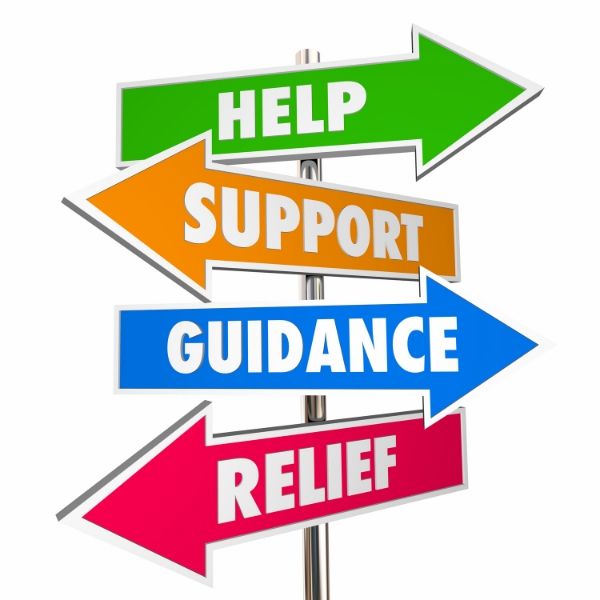Help Out Your Loved One by Staging an Intervention
Drug and alcohol addiction are physically and emotionally draining for all parties involved — from the substance user down to friends and family members. Ultimately, you all have one common goal: to see the dependent get treatment and live a healthy life.
At first, you may offer supportive dialogue and spark casual conversations to seek help. Too often, these aspirations and words of encouragement go on deaf ears. Maybe your loved one with an addiction is scared to go down that path. In more severe cases, they can feel fear, shame, or experience denial. Regardless of the emotion, they may need a nudge to get the process started. This is where an intervention can help them see a clearer picture, a path to recovery, and the needed support from family and friends.
At Beachside Rehab, we’ve teamed up with skilled professionals such as Kathie Oremus, a nationally certified sober companion and safe transport who runs Life & Recovery Support Services. Through this partnership, we can assist you and your family with the tools for a successful intervention.
What Is an Intervention?
Addiction is widespread in the U.S. But, even though 1 in 13 people need help with a substance abuse disorder, only 12.2% receive treatment. For some addicts, starting their journey toward recovery is as simple as identifying unhealthy, excessive behavior and admitting they need help. For others, it’s not as straightforward. Some people with addiction have a hard time recognizing the decisions they make and the hazardous impact they have on themselves and their loved ones.
An intervention is a detailed, controlled conversation you have with the substance user to get them the drug or alcohol rehab they need. An intervention shouldn’t be off the cuff or an ambush you throw together at the last minute out of desperation. Family and friends, with help from a counselor or professional interventionist, share thoughts and feelings about the addiction and ask if the dependent is willing to get help.
“I assess the situation to determine an overview of the addict’s history, family dynamics, and events/conditions which prompted the call for outside help,” Oremus says. “Often today, there are multiple addictions, possible undiagnosed (or diagnosed) mental health challenges, and legal considerations, all of which will drive treatment option considerations.”


When to Stage an Intervention
You may use an intervention early on in the addiction process or as a final attempt if other measures fail. It doesn’t always have to occur when a person with an addiction reaches rock bottom, though.
But, when is the proper time to stage an intervention and get the substance user outpatient help or admitted to an inpatient treatment program? Generally, you should try an intervention sooner rather than later, as damage to a person with an addiction and loved ones can worsen over time. The longer an addiction goes untreated, the longer it may take to recover.
“It’s difficult to know when the right time is to call for an intervention,” Oremus says. “There are a lot of variables. There’s never a bad time to have that discussion, though, and to seek treatment options and outside advice.”
Gather a Strong, Supportive Team
While you may think you need an army to deal with addiction, an intervention only requires a handful of people. There isn’t a specific number to abide by, but try for two to four people who are influential in the addict’s life. This could include parents, siblings, a spouse, children, or close friends. We strongly suggest using an interventionist or other third-party specialist. They’ll help to moderate the situation and provide a neutral perspective to help both sides meet in the middle.
Tread lightly when you build your intervention team. Someone who isn’t in the right mental space or a place of love and concern could jeopardize the intervention. Leave any unnecessary conflict at the door. If this proves to be too difficult, you can write the substance user a letter as a way to show your support.
“Here is where family coach training is valuable. If you can work with the whole family, since addiction affects the whole family, then the dependent has a better chance to succeed — they all do,” Oremus says. “And what I’ve noticed is that ‘healthy’ can be contagious within the family system!”

Planning a Successful Intervention
Ultimately, the end goal is for a person with an addiction to accept entry into a treatment program. Oremus estimates 90% of the work for a successful intervention comes from planning with key family members, friends, or other important individuals. It’s important to have a detailed plan, prepare everyone involved, and create a list of planned responses that you agree upon ahead of time.
This will allow you to iron out key details relevant to the intervention. You can even conduct a dry run beforehand so everyone is on board with the plan. It shouldn’t come off as overly scripted, rather, you can use it as a guide to keep you zeroed in on the task at hand — to get your loved one into a treatment program.
Come up with a list of topics or questions to discuss. Focus on triggers and destructive behaviors that affect your family. You should list which consequences, if any, exist for not accepting rehabilitation.

Finding a Detox or Rehabilition Center
You should figure out logistical details such as researching detox centers, finding a treatment program, or determining who will take care of children/family members if the substance user commits to rehab. Being prepared ahead of time can help you answer any questions from the dependent and prevent them from using excuses to avoid treatment.
Our drug detox center in West Palm Beach is the first step in addiction treatment where we provide patients with around-the-clock care. A drug detox facility allows addicts to avoid quitting cold turkey and, instead, receive assistance from medical professionals in a controlled environment.
Once detox is complete, our inpatient residential program offers the comfort and assurance of a full medical and clinical team where clients can begin their therapeutic process of healing both physically and mentally. Our residential clients have the ability to exercise daily in our on-site gym, attend a full clinical daily schedule with nightly recovery support groups, and enjoy down time in our recreation room or their own on-site bedroom.
Our luxury rehab center located in West Palm Beach, Florida takes a holistic approach to recovery and caters to the mind, body and soul of our patients. We offer similar amenities to what you’d find at a 4- or 5-star hotel but in a smaller setting (maximum of 24 clients at once) that provides an individualized experience.
In addition to residential services, we also offer inpatient treatment options to help clients identify and avoid substance abuse triggers. With this program, you have your own private therapist who handles cases. You also have the option of attending up to nine hours of group therapy each week.
What to Say During an Intervention
While planning an intervention is key, carrying out your blueprint for success can determine how effective the intervention is. What you say — and how you say it — will set the stage for productive conversations.
Speak with compassion and in a tone that comes across as loving and candid in regards to how their behaviors and consequences affect themselves and others.
“The focus is on getting them the help they need, with no blame on the addict,” Oremus says. “Family members will often be triggered — there is often a lot of emotional charge from the damage done to all from addiction. Here is where your pre-planning is essential. You manage the conversations to the ultimate goal of acceptance of treatment by the addict.”

Do Ultimatums Work?
Practical reasoning doesn’t always work and your family may present ultimatums. While they don’t always work, they can be effective because leverage is valuable in an intervention. During the pre-planning stage, Oremus says you can compile a list of actionable consequences, such as cutting off finances, rent, the ability to live at home, or legal consequences.
Don’t make empty threats, though. Set firm boundaries that end codependent and enabling behavior. If you say something, you should be willing to back it up. Bring solutions to the table, not to resurface problems. Look to the future and don’t dwell on the past. No one wants to feel like they’re being lectured.
“You’re conducting an intervention because a person with an addiction has lost their ability to make good decisions for themselves,” Oremus says. “If you’re into ultimatums, the substance user can be combative as they try to uphold their defenses of denial. Leverage is a big help and, combined with loving reasoning, they often accept the terms.”

What Happens If an Intervention Fails?
How you define success comes down to individual family goals and aspirations. For some, success may be getting the person with an addiction to agree to rehab. For others, success comes with completing a treatment program. Maybe you view success as completing rehab and living a sober life void of relapse.
A failed intervention doesn’t mean it’s the end of the road to getting your loved one the help they need and deserve. The intervention process is difficult and it may take time for the substance user to grasp the situation and any demands or ultimatums you present them. The intervention can at least serve as a stepping stone or as a way to plant a seed toward recovery.
“When the family prepares for all options, they’re more informed and educated going forward,” Oremus says. “That can be productive for you to support your continued efforts to get your loved one into treatment and long-term recovery.”

The Path to Recovery Starts Today
Interventions are far more difficult than they seem to the average person. There are layers full of denial and resistance from both the substance user and their loved ones. Since an intervention is the most critical first step in bringing someone into the recovery process, it’s best managed by a seasoned professional.
At Beachside, we can provide you with an interventionist who has a specialized skill set to meet your needs. In return, you’ll have all the necessary resources at your disposal to help your loved one succeed. Contact us today by phone at (888) 762-7943 to get the help your family deserves.
From the Blog
Spring Cleaning Your Mind: Releasing Stress and Embracing Mental Wellness
Just as spring is a time for decluttering and renewal, it’s also the perfect opportunity to address mental well-being. These practical strategies can help “spring clean” your mind, release stress, and cultivate a more positive mindset.
read more










